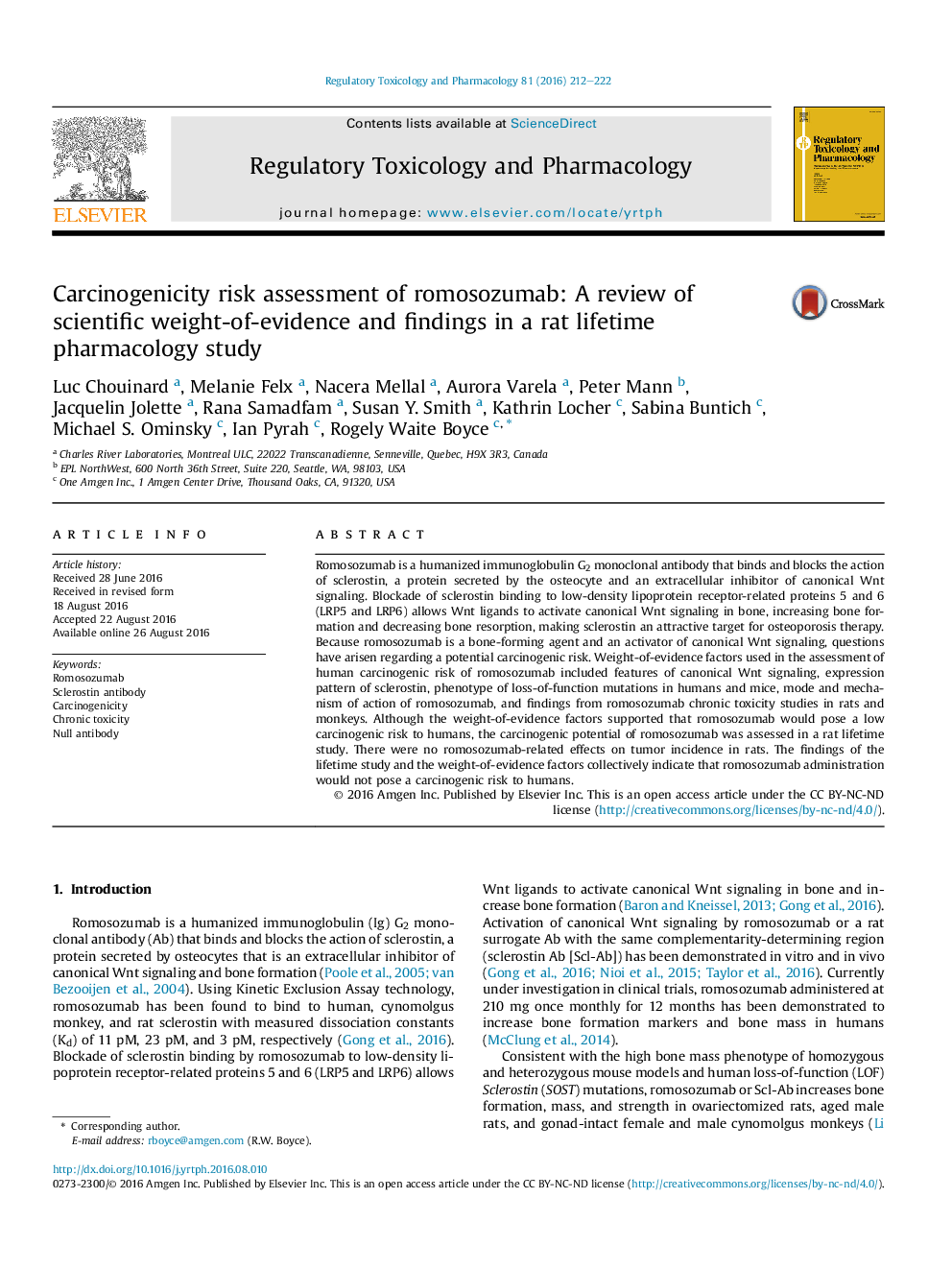| کد مقاله | کد نشریه | سال انتشار | مقاله انگلیسی | نسخه تمام متن |
|---|---|---|---|---|
| 5855732 | 1562122 | 2016 | 11 صفحه PDF | دانلود رایگان |
- Romosozumab is an anti-sclerostin antibody that increases bone formation.
- Based on mechanism of action, concerns regarding carcinogenic risk have been raised.
- Scientific weight-of-evidence indicated a low carcinogenic risk to humans.
- Romosozumab was not carcinogenic in a rat lifetime pharmacology study.
- Collective data support romosozumab would not pose a carcinogenic risk to humans.
Romosozumab is a humanized immunoglobulin G2 monoclonal antibody that binds and blocks the action of sclerostin, a protein secreted by the osteocyte and an extracellular inhibitor of canonical Wnt signaling. Blockade of sclerostin binding to low-density lipoprotein receptor-related proteins 5 and 6 (LRP5 and LRP6) allows Wnt ligands to activate canonical Wnt signaling in bone, increasing bone formation and decreasing bone resorption, making sclerostin an attractive target for osteoporosis therapy. Because romosozumab is a bone-forming agent and an activator of canonical Wnt signaling, questions have arisen regarding a potential carcinogenic risk. Weight-of-evidence factors used in the assessment of human carcinogenic risk of romosozumab included features of canonical Wnt signaling, expression pattern of sclerostin, phenotype of loss-of-function mutations in humans and mice, mode and mechanism of action of romosozumab, and findings from romosozumab chronic toxicity studies in rats and monkeys. Although the weight-of-evidence factors supported that romosozumab would pose a low carcinogenic risk to humans, the carcinogenic potential of romosozumab was assessed in a rat lifetime study. There were no romosozumab-related effects on tumor incidence in rats. The findings of the lifetime study and the weight-of-evidence factors collectively indicate that romosozumab administration would not pose a carcinogenic risk to humans.
Journal: Regulatory Toxicology and Pharmacology - Volume 81, November 2016, Pages 212-222
